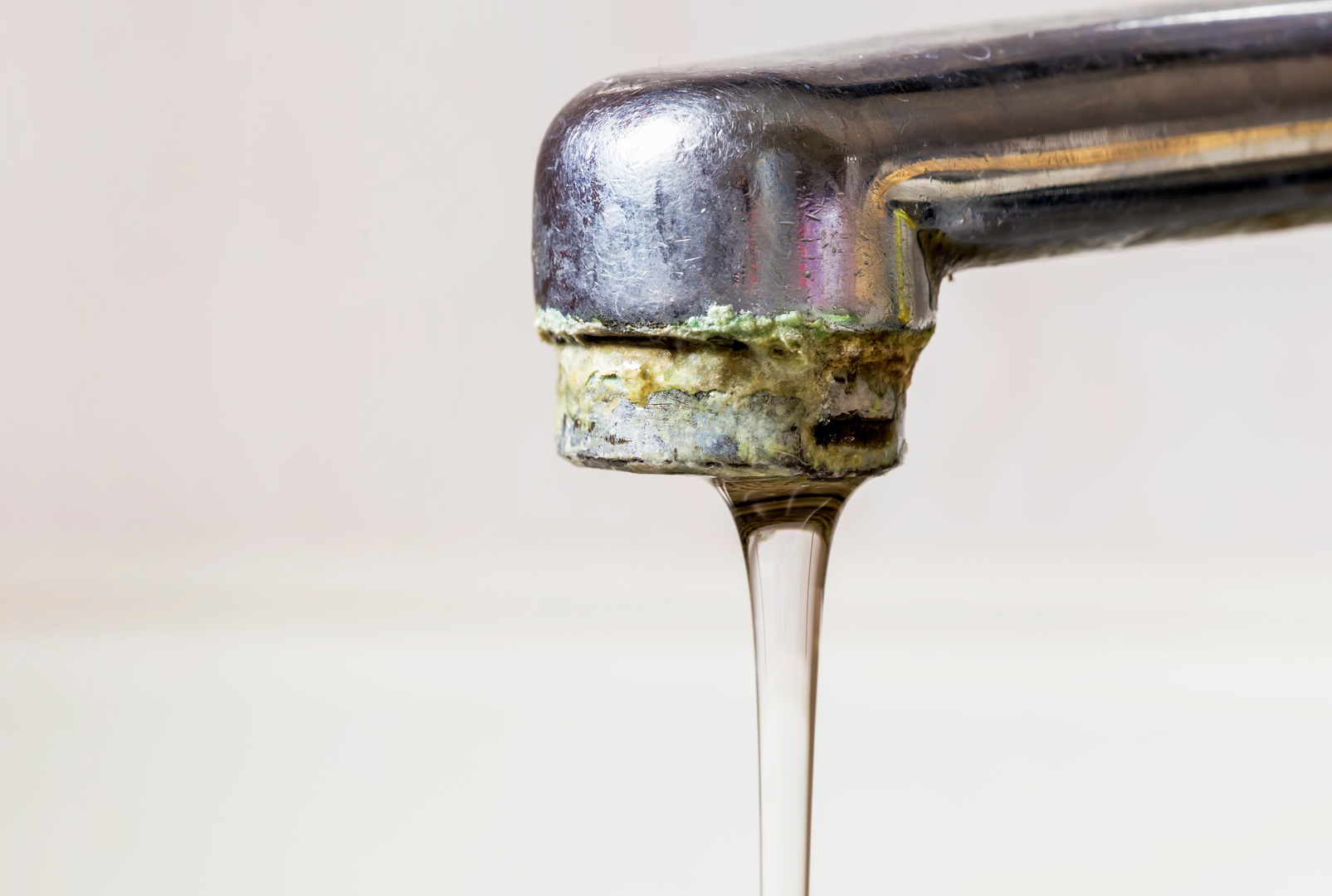
The Benefits of a Water Softener: Why Your Home Needs One
The Benefits of a Water Softener: Why Your Home Needs One
Water is an essential part of our daily lives, used for drinking, cooking, cleaning, and bathing. However, not all water is created equal. Many households face the challenge of "hard water," which is water that contains high levels of minerals like calcium and magnesium. This is where water softeners come into play, offering a solution that transforms hard water into soft water, bringing a host of benefits to your home and health.
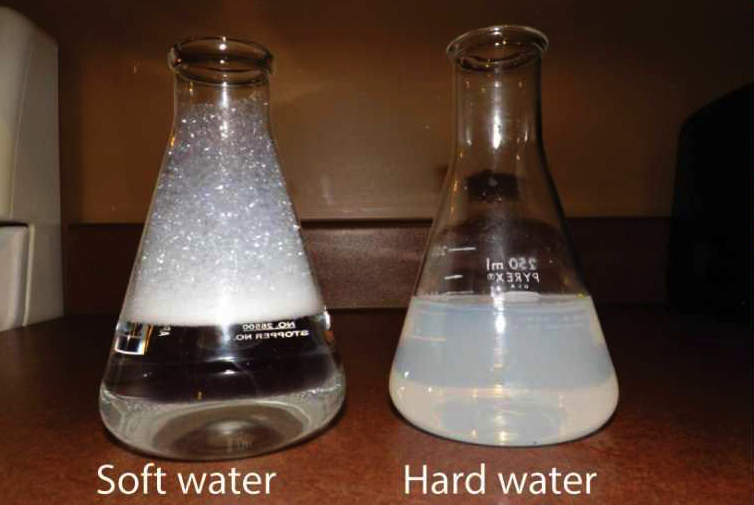
What is Hard Water?
Hard water is characterized by its high mineral content, particularly calcium and magnesium. While not harmful to health, hard water can cause a range of issues in household applications:
- Scale Buildup: Minerals in hard water can accumulate in pipes, appliances, and fixtures, leading to reduced efficiency and potential damage.
- Reduced Soap Efficiency: Hard water reacts with soap to form soap scum, reducing lather and making cleaning less effective.
- Skin and Hair Issues: Hard water can leave a residue on skin and hair, causing dryness and irritation.
- Stained Laundry and Dishes: Hard water can leave spots and stains on clothing and dishes, making them look dull and unclean.
How Does a Water Softener Work?
A water softener is a device that removes minerals from hard water, typically using a process called ion exchange. Here’s how it works:
- Mineral Exchange: Hard water flows through the water softener, where resin beads coated with sodium or potassium ions attract and hold the calcium and magnesium ions.
- Regeneration Cycle: Over time, the resin beads become saturated with minerals and need to be regenerated. The water softener flushes the resin with a salt solution, replenishing the sodium or potassium ions and flushing the collected minerals down the drain.
- Soft Water: The water that leaves the softener is now "soft" and free of the hard minerals that cause so many household issues.
The Benefits of Using a Water Softener
Investing in a water softener can provide numerous advantages for your home, health, and wallet. Let’s explore these benefits in detail.
1. Prolonged Appliance Lifespan
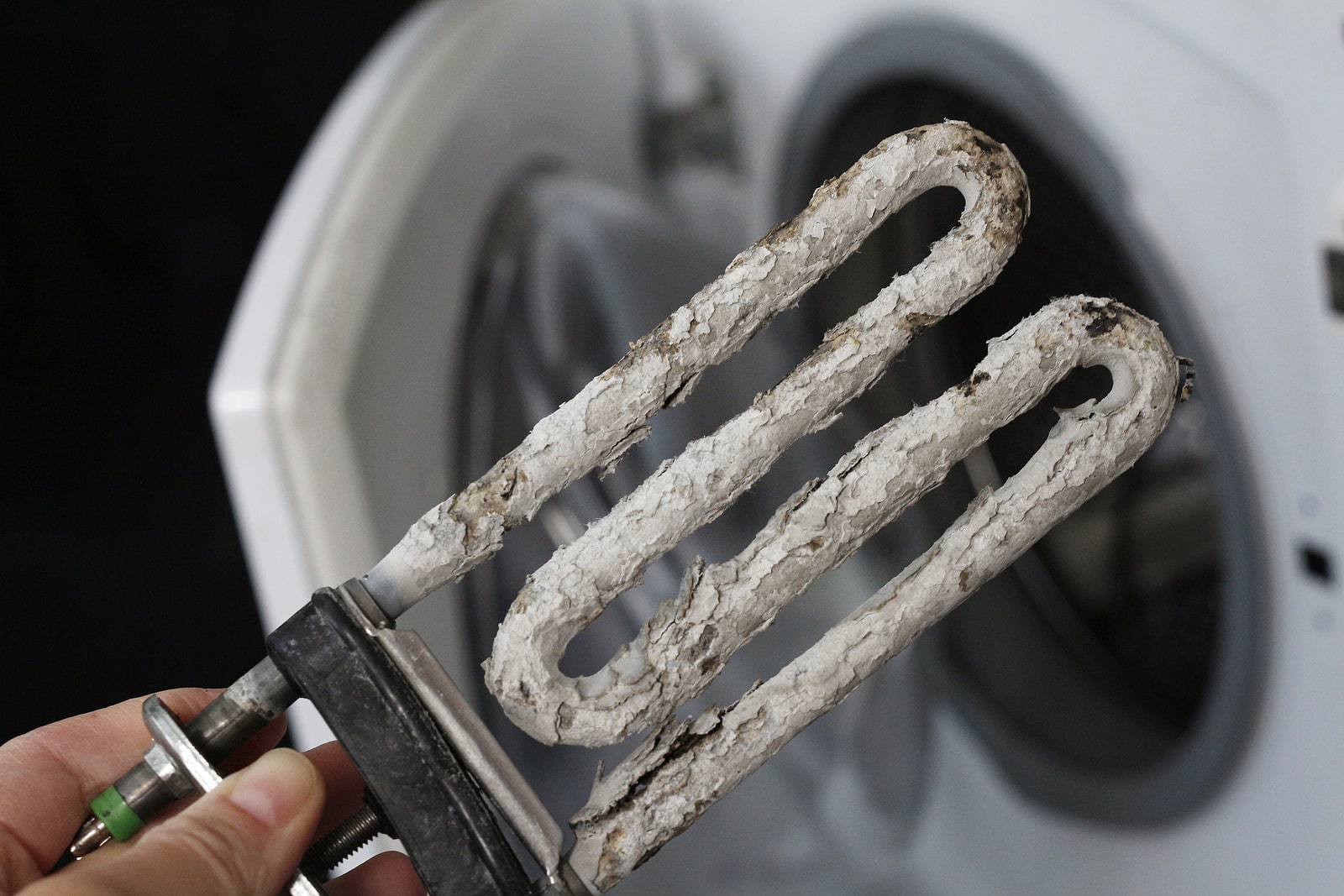 The results of hard water on a washing machine element.
The results of hard water on a washing machine element.
Appliances such as dishwashers, washing machines, and water heaters are susceptible to damage from scale buildup caused by hard water. This buildup can reduce the efficiency and lifespan of these appliances. By using softened water, you can:
- Prevent Scale Accumulation: Keep appliances running efficiently and extend their lifespan.
- Reduce Maintenance Costs: Lower the frequency of repairs and maintenance due to mineral deposits.
- Increase Energy Efficiency: Appliances operate more efficiently without scale buildup, reducing energy consumption.
2. Improved Cleaning Efficiency
Soft water enhances the effectiveness of soaps and detergents, leading to better cleaning results:
- Better Lather: Soft water allows soaps and shampoos to lather more effectively, requiring less product to achieve a thorough clean.
- Spot-Free Dishes: Glassware and dishes come out of the dishwasher free of spots and streaks.
- Brighter Laundry: Clothes and linens washed in soft water are cleaner, brighter, and softer.
3. Healthier Skin and Hair
Hard water can leave a residue on the skin and hair, contributing to dryness and irritation. Soft water offers several benefits for personal care:
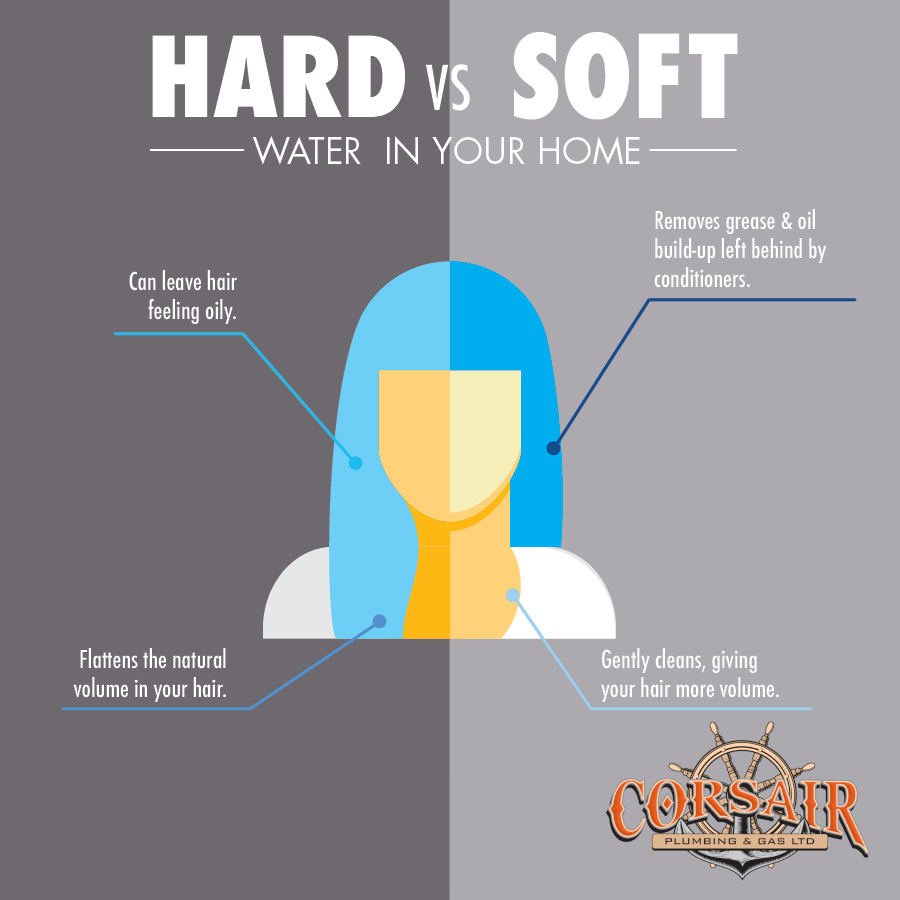
- Smoother Skin: Soft water rinses cleaner, leaving skin feeling softer and less prone to dryness.
- Shinier Hair: Hair washed in soft water is often softer, shinier, and easier to manage.
- Gentle on Sensitive Skin: Soft water is less likely to aggravate conditions like eczema or dermatitis.
4. Reduced Plumbing Issues
Hard water can cause scale buildup in pipes and plumbing fixtures, leading to blockages and decreased water flow. Soft water helps in:
- Preventing Clogs: Reduced scale buildup means fewer clogs and blockages in pipes.
- Extending Fixture Life: Faucets, showerheads, and other fixtures last longer without the corrosive effects of mineral deposits.
- Maintaining Water Pressure: Unobstructed pipes ensure consistent and adequate water pressure throughout your home.
5. Cost Savings
While the initial investment in a water softener might seem significant, the long-term savings can be substantial:
- Lower Energy Bills: Soft water improves the efficiency of water heaters and other appliances, reducing energy consumption.
- Reduced Cleaning Costs: You’ll spend less on cleaning products, detergents, and soaps.
- Fewer Repairs and Replacements: With reduced wear and tear on appliances and plumbing, you’ll save on repair and replacement costs.
Choosing the Right Water Softener
Check out our line of Canature Water Softeners
Selecting the appropriate water softener for your home involves considering factors such as water hardness levels, household size, and your specific needs. Consulting with a water treatment specialist can help you find the best solution.
Types of Water Softeners
- Salt-Based Softeners: These are the most common and use sodium or potassium chloride to remove hardness minerals.
- Dual-Tank Softeners: Ideal for larger households or areas with very hard water, these systems have two resin tanks for continuous soft water supply.
- Specialized Softeners: These specific softeners work on reducing water hardness as well as improving other water quality deficiencies such as excessive iron, manganese, or chlorine.
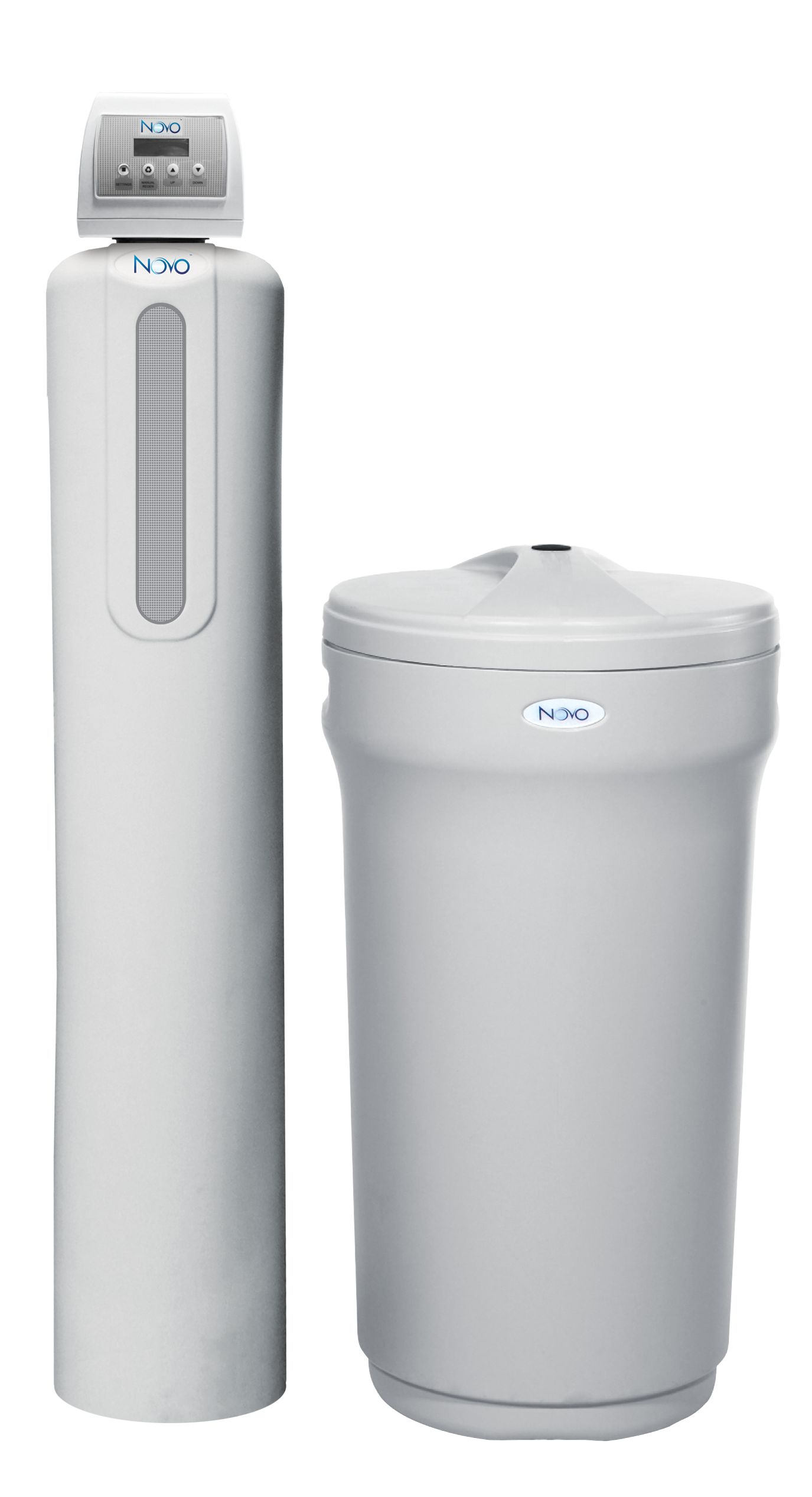 Novo 485 High Efficiency Water Softener uses up to 75% less salt and 64% less water then conventional softeners.
Novo 485 High Efficiency Water Softener uses up to 75% less salt and 64% less water then conventional softeners.
Installation and Maintenance
- Professional Installation: Ensures the water softener is properly set up and integrated with your home's plumbing.
- Regular Maintenance: Includes adding salt or potassium to the brine tank and occasionally cleaning the system to maintain its efficiency.
Conclusion
A water softener is more than just a luxury; it’s a smart investment that can improve your home's efficiency, extend the life of your appliances, enhance your personal care routines, and save you money in the long run. If you're dealing with the issues caused by hard water, consider adding a water softener to your home for a significant upgrade in your daily water experience.
By embracing the benefits of soft water, you’ll enjoy a cleaner, more efficient, and more comfortable home environment. For a tailored solution, consult with a professional to find the best water softening system for your needs.
For further information on water softeners and to find the right solution for your home, feel free to explore the following resources:
- Guidelines for Canadian Drinking Water
- Water Quality Association
- Environmental Protection Agency (EPA) on Water Treatment
- Consumer Reports on Water Softeners